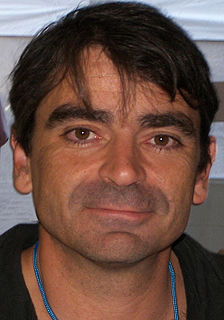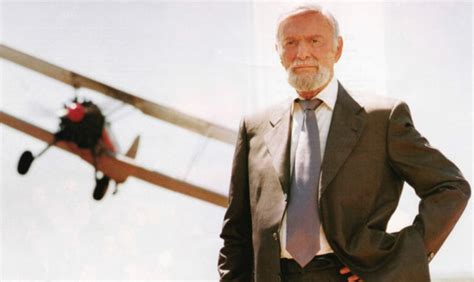A Quote by Robert Benchley
Nine-tenths of the value of a sense of humor in writing is not in the things it makes one write but in the things it keeps one from writing. It is especially valuable in this respect in serious writing, and no one without a sense of humor should ever write seriously. For without knowing what is funny, one is constantly in danger of being funny without knowing it.
Related Quotes
I remember reading in a comedy book very long ago when I first started, a person said there's a difference between a sense of humor and a sense of funny. A sense of humor is knowing what makes you laugh and a sense of funny is knowing what makes other people laugh. The journey of comedy, in a sense, is negotiating those two worlds.
God has a tremendous sense of humor! Religion remains something dead without a sense of humor as a foundation to it. God would not have been able to create the world if he had no sense of humor. God is not serious at all. Seriousness is a state of disease; humor is health. Love, laughter, life, they are aspects of the same energy.
I would say just start writing. You've got to write every day. Copy someone that you like if you think that perhaps could become your sound, too. I did that with Hemingway, and I thought I was writing just like Hemingway. Then all of a sudden it occurred to me - he didn't have a sense of humor. I don't know anything he's written that's funny.
Start dating someone who is funny, someone who has what in high school you called a "really great sense of humor" and what now your creative writing class calls "self-contempt giving rise to comic form." Write down all of his jokes, but don't tell him you are doing this. Make up anagrams of his old girlfriend's name and name all of your socially handicapped characters with them. Tell him his old girlfriend is in all of your stories and then watch how funny he can be, see what a really great sense of humor he can have.
The secret to writing is just to write. Write every day. Never stop writing. Write on every surface you see; write on people on the street. When the cops come to arrest you, write on the cops. Write on the police car. Write on the judge. I'm in jail forever now, and the prison cell walls are completely covered with my writing, and I keep writing on the writing I wrote. That's my method.
You have to understand that people feel threatened by a writer. It's very curious. He knows something they don't know. He knows how to write, and that's a subtle, disturbing quality he has. Some directors without even knowing it, resent the writer in the same way Bob Hope might resent the fact he ain't funny without twelve guys writing the jokes. The director knows the script he is carrying around on the set every day was written by someone, and that's just not something that all directors easily digest.
Write all the time. I believe in writing every day, at least a thousand words a day. We have a strange idea about writing: that it can be done, and done well, without a great deal of effort. Dancers practice every day, musicians practice every day, even when they are at the peak of their careers – especially then. Somehow, we don’t take writing as seriously. But writing – writing wonderfully – takes just as much dedication.

































